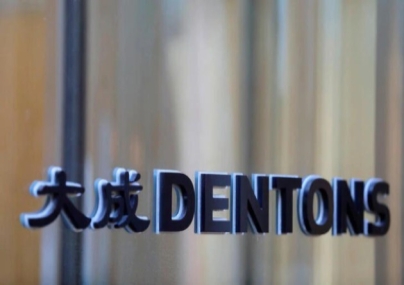
Stringent pandemic curbs, domestic economic headwinds, and tightening regulatory controls have put a dampener on mergers and acquisitions activity in China so far this year. And the leader of the world’s second-largest economy has hardly reassured market observers hoping for a robust revival for the remainder of 2022.
Kickstarting the Chinese Communist Party’s 20th National Congress on Oct. 16, President Xi Jinping touted his country’s “COVID Zero” approach, characterised by large-scale snap lockdowns, rigid testing requirements, and harsh border restrictions, as a tested recipe for long-term prosperity.
“We have protected the people's health and safety to the greatest extent possible and made tremendously encouraging achievements in both epidemic response and economic and social development,” Xi said during a two-hour speech widely seen as setting out the directives for the week-long conference.
Understandably, markets are far from rejoicing, with traders and investors hungry for more policy support to give the sluggish dealmaking scene a boost.
For the first nine months of the year, M&A transaction values involving China plummeted to a nine-year nadir at $266 billion - a 35 percent drop year-on-year, according to data cited by Reuters. Macroeconomic factors are at play, as a PwC June analysis noted a worldwide reset of deal activity to pre-pandemic levels after a record-smashing 2021. But the Asia-Pacific region, where China remains the largest M&A market, has borne the biggest loss in deal volume and value in the first half of 2022.
David Wang, a corporate partner at Paul Hastings, says the factors behind the slowing M&A pace include “geopolitics that led to increased national security scrutiny for certain industries over the last two to three years.”
Judie Ng Shortell, managing partner of the China practice at Paul, Weiss, Rifkind, Wharton & Garrison, acknowledges the subdued dealmaking and fundraising movements in Greater China, but points out that “while fundraising is becoming harder, the dry powder has not left in its entirety.”
According to PwC, the “dry powder” – or unspent capital from investors – of global private equity firms has shot up to a record $2.3 trillion in June. As such, PE firms have become the core engines driving deal work in emerging Asian markets.
By the end of September, M&A transactions in India jumped 55 percent to reach $145 billion, propped up by the country’s largest private lender HDFC Bank’s $40 billion acquisition of its biggest shareholder, reported Reuters.
Noting the burgeoning investment appetite in India as well as Southeast Asia, Ng Shortell says the Greater China region is simply too big to ignore.
“The market entry into Greater China is particularly high; it is not a market that you can simply dip in and out of,” Ng Shortell explains. “With China’s ever-rising purchasing power, foreign businesses in Greater China often hold a firm belief in the region’s potential for success over the long term.”
Wang obverses that industries such as e-commerce and biotechnology have been “temporarily falling out of favour with buyers and investors over the last year.” But in Ng Shortell’s view, “the pharmaceutical and biotechnology sectors are favourable to invest in, given the strategic importance set out by the Chinese government.”
As China pivots to sustainability, data security and technological self-reliance, she believes businesses versed in electronic vehicles and data centre infrastructure are also prone to be more competitive.
But so far, multinational companies have been bolstering China’s dealmaking sphere by “selling their non-core businesses as a means to navigate the challenging economy globally, induced by the pandemic,” Ng Shortell notes.
“Under the challenging market conditions, more companies, large MNCs included, will likely be inclined to focus on their core strengths and offload non-core businesses via carve-outs or spinoffs,” she adds.
Dealmakers also favour Hong Kong-listed companies due to falling stock prices, and take-privates of U.S.-listed Chinese companies as tightened audit criteria hike de-listing risks. But both strategic and financial investors have grown more cautious.
“Financial investors are taking more time to look at the fundamentals of the target companies and the investment strategies, and are putting more thought towards various case scenarios, especially on downside protection and exit strategy,” Ng Shortell notes, adding that resourceful strategic investors, referring to corporate players, are patiently waiting for a viable target to acquire, and a favourable valuation to act on.
Nevertheless, Ng Shortell is confident that deal activity will pick up after the CCP Congress, where top policymakers mapped out the blueprint for China’s development in the next five years despite an absence of indication that Beijing is veering away from its “dynamic zero” COVID policy that bedevilled foreign businesses and stirred citizens’ dissent.
“Given the sheer size of China’s population and economy, it will continue to be the centrepiece of Asia’s M&A landscape in the medium and long run,” says Ng Shortell, as China’s seen its third quarter GDP rise at a faster-than-expected pace.
Wang also believes that “the tides will turn”, and deal work involving mainland Chinese companies will soon rebound and flourish at a time when the International Monetary Fund paints a dismal outlook for the global economy in 2023.

